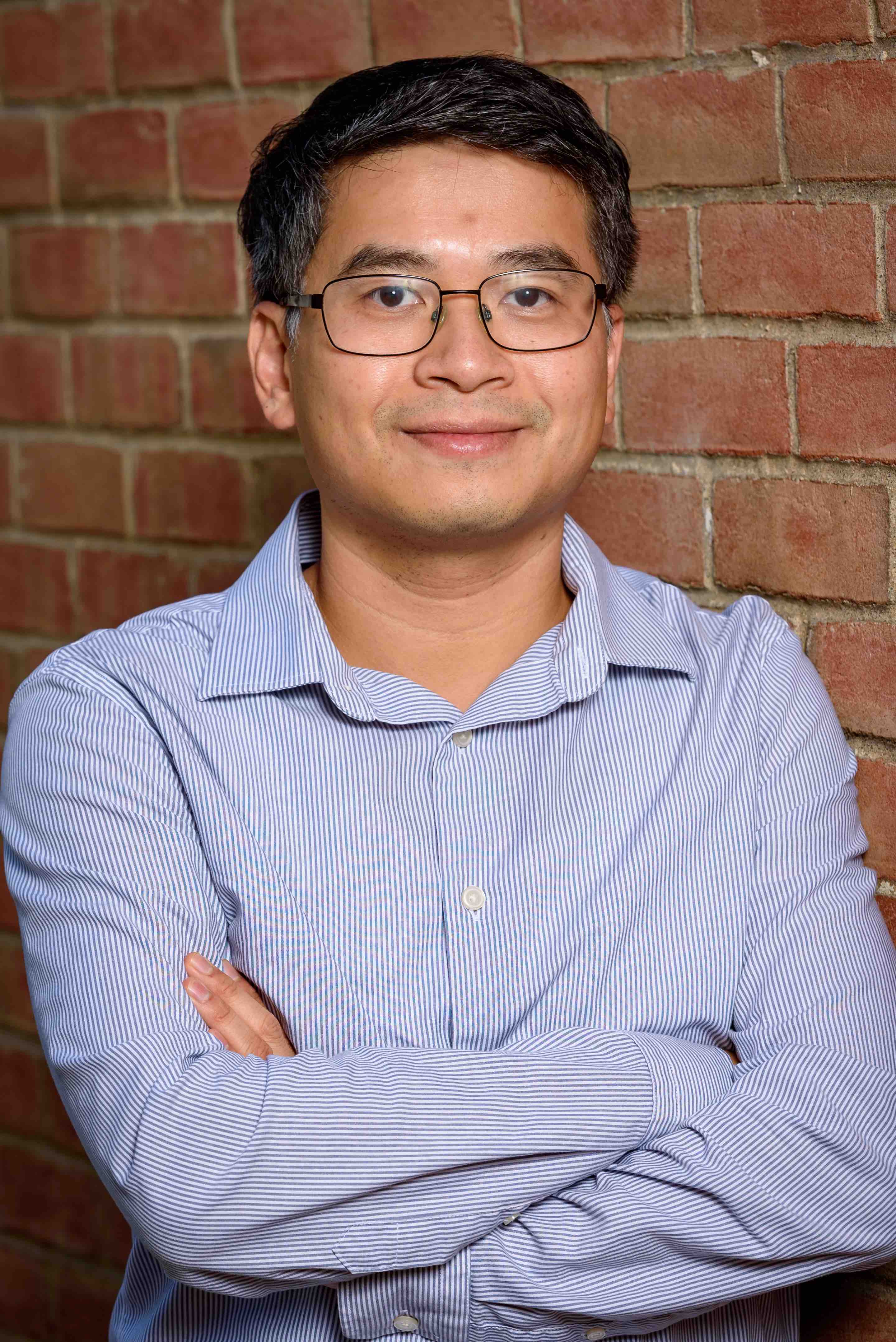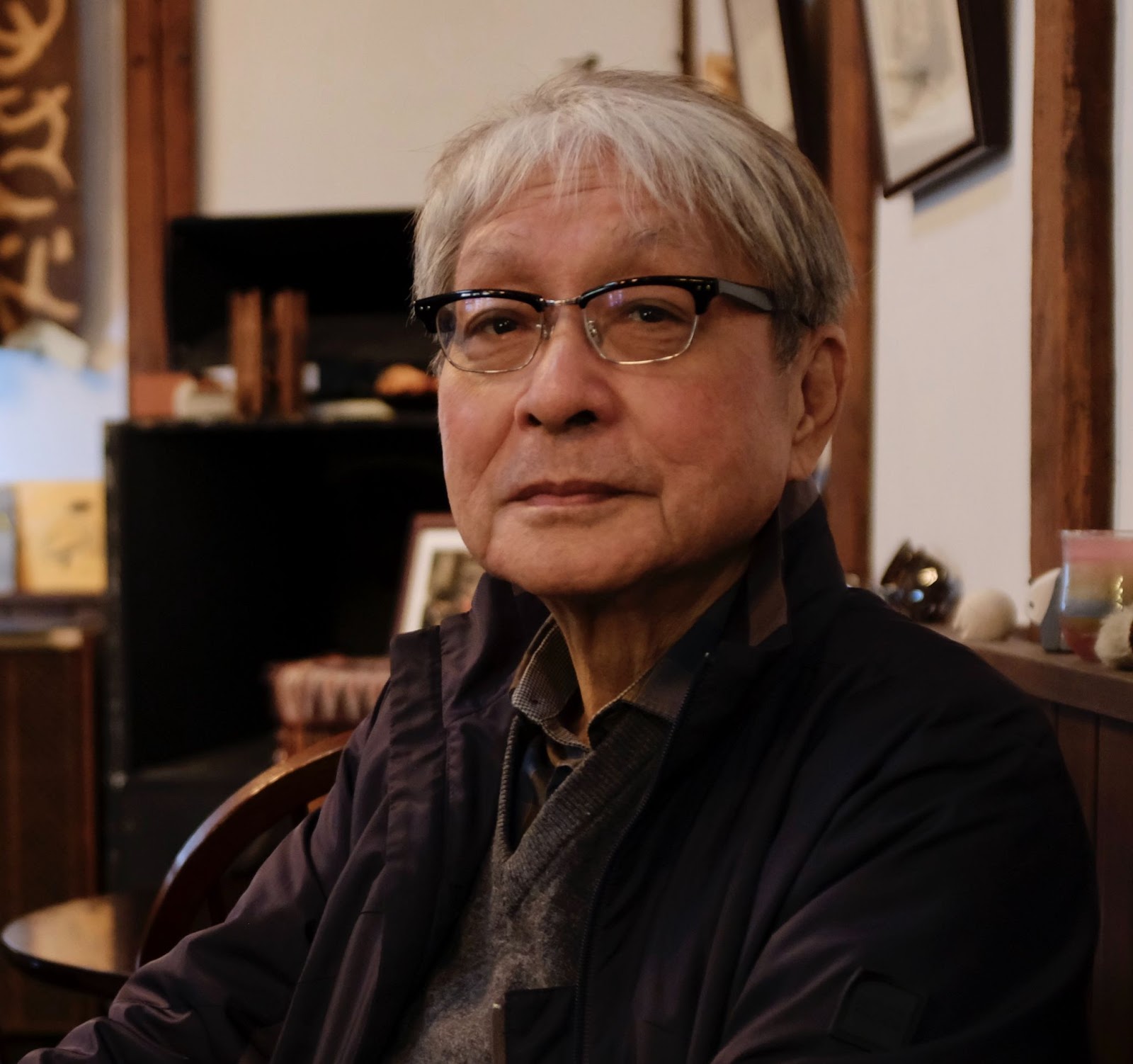 1. Professor Minh Hoai
1. Professor Minh Hoai
(Computer Science Department, Stony Brook University, USA)
Minh Hoai is an Associate Professor of Computer Science at the State University of New York at Stony Brook. Prior to Stony Brook, he was a postdoctoral researcher at Oxford University and a junior research fellow at Brasenose College. He received a Ph.D. in Robotics from Carnegie Mellon University in 2012 and a Bachelor of Software Engineering from the University of New South Wales in 2005. His research interests are in computer vision and machine learning, especially human behavior analysis and visual counting. He has published extensively in top-tier peer-reviewed conferences and journals, including CVPR, NIPS, PAMI and IJCV. Professor Minh Hoai is also a Principal Research Scientist at VinAI, heading the Computer Vision research group and the Smart Edge product division to develop a cost-effective large-scale solution for tens of thousands of camera streams.
More information is available at: https://www3.cs.stonybrook.edu/~minhhoai/
Talk: Unlocking the Full Potential of AI in Video Surveillance: Overcoming Cost and Accuracy Challenges
The application of AI for real-time video analytics has the potential to revolutionize video surveillance, enhancing safety, compliance, and convenience for all. However, this promising advancement also presents formidable challenges, primarily centered around cost and accuracy. One pressing concern is the substantial computing resources required to run AI models, particularly in large-scale scenarios with thousands of cameras. The scale of computation can become a significant barrier, necessitating the development of AI inferencing pipelines for high throughput processing. Moreover, deploying a single fixed AI model for all surveillance scenes introduces the risk of numerous errors and inaccuracies. Consequently, post-deployment model improvement becomes a crucial requirement to meet the diverse demands of varying surveillance environments.
During this talk, I will share my firsthand experiences in developing cutting-edge surveillance technologies that directly confront these challenges. The first part of the talk will focus on GuardPro, a product designed for real-time monitoring of residential buildings utilizing 9,000 video streams. It boasts AI models that can efficiently support up to 150 camera streams per AI accelerator, resulting in a 30% saving in hardware costs. In the second part of the talk, I will present an innovative method for self-supervised model improvement. This technique empowers AI systems to learn autonomously, continually adapting to specific scenes over time, thereby enhancing accuracy and performance.

2. Professor Chan Chee Seng
(Universiti Malaya (UM), Kuala Lumpur, Malaysia)
Dr. Chan is a full Professor at Universiti Malaya (UM), Kuala Lumpur, Malaysia, where he leads a young and energetic research team that specializes in computer vision and machine learning. Together with the team, he has published more than 100 papers in top peer-review computer vision/machine learning conferences and journals.
Dr. Chan was the recipient of Top Research Scientists Malaysia (TRSM) in 2022, Young Scientists Network Academy of Sciences Malaysia (YSN-ASM) in 2015 and Hitachi Research Fellowship in 2013. Besides that, he is also a senior member of IEEE and Chartered Engineer (IET). He serves as an Associate Editor of Pattern Recognition (Elsevier), and has co-organized several workshops/tutorials and challenges at major computer vision/machine learning conferences.
More information is available at: http://cs-chan.com/
Talk: DeepIP: Intellectual Property Protection for Deep Learning Model
With substantial amount of time, resources and human (team) efforts invested to explore and develop successful deep neural networks (DNN), there emerges an urgent need to protect these inventions from being illegally copied, redistributed, or abused without respecting the intellectual properties of legitimate owners. Following recent progress along this line, this talk will first present a number of watermark-based DNN ownership verification methods in the face of ambiguity attacks, which aim to cast doubts on the ownership verification by forging counterfeit watermarks. It is shown that ambiguity attacks pose serious threats to existing DNN watermarking methods. As remedies to the above-mentioned loophole, the second part of this talk will introduce a novel passport-based DNN ownership verification schemes which are both robust to network modifications and resilient to ambiguity attacks. The gist of embedding digital passports is to design and train DNN models in a way such that, the DNN inference performance of an original task will be significantly deteriorated due to forged passports. In other words, genuine passports are not only verified by looking for the predefined signatures, but also reasserted by the unyielding DNN model inference performances. Finally, the talk will discuss how the presented passports can play an indispensable role in bringing DNN behaviours under control against adversarial attacks, as it has been demonstrated for DNN ownership verifications.
 3. Professor Junichi Tsujii
3. Professor Junichi Tsujii
(Artificial Intelligence Research Center (AIRC), National Institute of Advanced Industrial Science and Technology (AIST), Japan)
Prof. Tsujii is director of the Artificial Intelligence Research Center (AIRC), National Institute of Advanced Industrial Science and Technology (AIST), Japan. He is also a professor in the Department of Computer Science at the University of Manchester and an emeritus professor at the University of Tokyo. He obtained his D.Eng. on the topic of Question Answering Systems from Kyoto University, where he continued working as a research assistant and associate professor. He has conducted research into Natural Language Processing in several institutions worldwide, notably CNRS (GETA), France, the University of Manchester, UK, the University of Tokyo, and Microsoft Research, China.
He is ex-president of ACL, the Asian Federation of Natural Language Processing Associations (AFNLP), and the International Association of Machine Translation (IAMT). He is Chair of the International Committee of Computational Linguistics (ICCL). In 2010, Prof. Tsujii was awarded the Medal of Honour with Purple Ribbon, one of Japan's highest awards, presented to influential contributors in the fields of art, academics, or sports.
More information is available at: https://www.aclweb.org/portal/content/junichi-tsujii-receives-2021-acl-l...
Talk: Research Overview of the AIRC in Japan
The Artificial Intelligence Research Center (AIRC) was established as a hub center of AI research in Japan under the Ministry of Economy, Trade and Industry, 2015. Since then, we have achieved significant contributions in diverse areas of AI research. I will talk on recent achievements in image processing, robotics, speech and multi-modal information processing, and future directions of our center. We are focusing on foundation models of language processing, image and speech processing and their integration.


